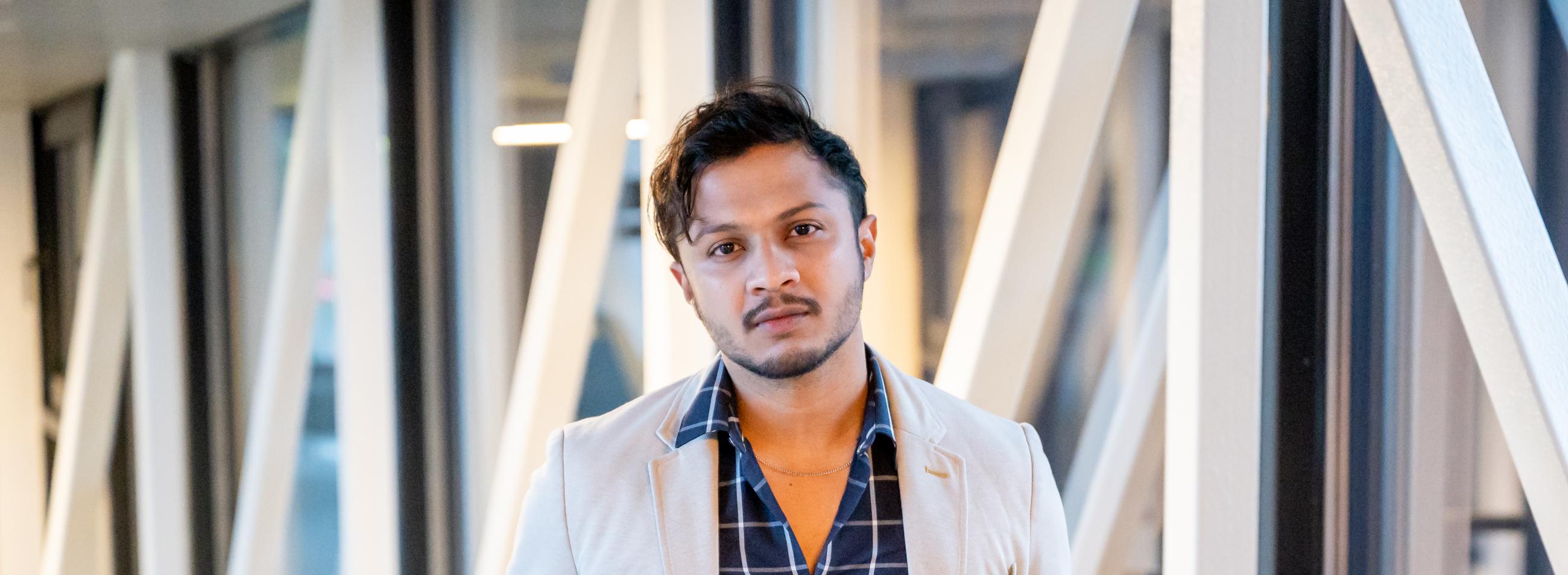Md Musa Howlader: "Every experiment contributes to our understanding, we acquire knowledge even from those experiments that are unsuccessful"
In May 2023 Md Musa Howlader from the School of Natural Sciences and Health defended the doctoral thesis "Algal polysaccharide degrading enzymes from marine bacteria".

How did you find your research topic?
Being a final-year master’s student in Microbiology, I had a goal of pursuing a PhD on a topic that involves microorganisms. I started looking for different options and came across a PhD project topic by Prof. Rando Tuvikene at Tallinn University. I was fascinated by how our common interests collided in that project proposal, which compelled me to apply for this position.
How will your research change the world?
The subject of my doctoral dissertation was "Enzymes that Break Down Algal Polysaccharides in Marine Bacteria." During this research, we uncovered a novel enzyme capable of breaking down funoran, a marine polysaccharide, into smaller molecules, potentially enhancing its bioactive characteristics. These qualities could expand its utility across various industries, particularly in pharmaceuticals and cosmetics. Furthermore, the study delves into a lesser-explored bacterial genus, specifically the Cellulophaga species, and provides insights into its carrageenan secretion production profile.
What were your tactics for consistently working on your doctoral thesis in order to successfully reach the end?
Undertaking a PhD in the life sciences can present significant challenges, including the potential for numerous unsuccessful experiments. Nevertheless, it's crucial to bear in mind that every experiment contributes to our understanding, and we invariably acquire knowledge, even from those experiments that are unsuccessful. These experiences represent progress in our educational journey.
What was a memorable or funny instance that happened while writing the thesis?
During this period, I can identify my closest companions at the office: a cozy blanket, some snacks, and plenty of coffee.
Based on your field of research, what does "intelligent lifestyle" mean for you?
Allow your imagination to roam freely, whether it's for those unsuccessful lab experiments or the research discussions that bring you joy!
What is something you appreciate about your dissertation supervisor?
My Ph.D. mentor was Professor Rando Tuvikene, someone from whom I had much to learn and draw inspiration. Many times, when my endeavors were not successful, Professor Rando provided guidance and steered me in the right direction. I greatly admire his positive outlook and vision.